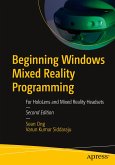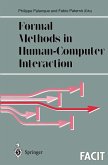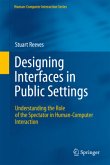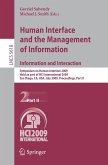An increasing number of systems are exploiting mixed reality but to date there are no systematic methods, techniques or guidelines for the development of such systems. In bringing together contributions on a broad range of mixed reality development issues this book provides a sound theoretical foundation for a disciplined approach to mixed reality engineering.
Divided into three parts: interaction design, software design and implementation, the first section covers generic and specific mixed reality design elements and provides an overview of the design method; Part 2 addresses technical solutions for interaction techniques, development tools and a global view of the mixed reality software development process. The final section contains detailed case studies to highlight the application of mixed reality in a variety of fields including aviation, architecture, emergency management, games, and healthcare.
Divided into three parts: interaction design, software design and implementation, the first section covers generic and specific mixed reality design elements and provides an overview of the design method; Part 2 addresses technical solutions for interaction techniques, development tools and a global view of the mixed reality software development process. The final section contains detailed case studies to highlight the application of mixed reality in a variety of fields including aviation, architecture, emergency management, games, and healthcare.









